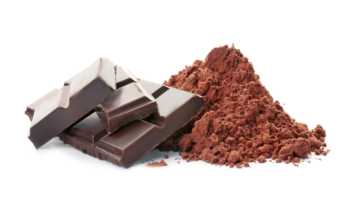Our Members Asked:
Is Hershey's Special Dark better than other dark chocolate bars or cocoa powders?

Answer:
Testing by ConsumerLab.com suggests that Hershey's Special Dark products are actually lower in beneficial cocoa flavanols than many other dark chocolates and cocoa powders. The likely reason for this is that Hershey's Special Extra Dark chocolate and cocoa powder are "processed with alkali." This process, also known as "dutching," makes cocoa and dark chocolate less bitter and a bit darker, but also significantly reduces the flavanol content.
ConsumerLab.com found that Hershey's Special Dark chocolate bar actually had the lowest concentration of cocoa flavanols among 16 popular dark chocolates it tested. Flavanol levels among the bars ranged from a low of just 3.4 mg per gram in Hershey's Special Dark to a high of 14.8 mg per gram, with most bars providing between 4.5 to 9 mg of flavanols per gram. At a standard serving size of 40 grams, many bars can easily provide at least 200 mg of flavanols — an amount associated with improved blood flow, but Hershey's Special Dark does not.
Although ConsumerLab.com did not test Hershey's Special Dark cocoa powder, it did test Hershey's "100% cacao, natural unsweetened" cocoa powder -- which is not treated with alkali. This powder contained one of the highest concentrations of flavanols among the cocoa powders tested, providing about 24 mg of flavanols per gram, while most powders provided between and 12 mg and 26 mg per gram. However, Hershey's natural cocoa powder was found to be contaminated with cadmium -- which is a kidney toxin, although it was not alone in this respect: Every cocoa powder tested was found to be contaminated with cadmium and/or lead, another toxic heavy metal.
The amount of cadmium found in a 1 tablespoon serving of Hershey's natural cocoa powder was just over the daily limit for chronic (long-term) cadmium exposure as established in Canada (the U.S. has not established a limit). It would seem best to use such products in moderation. Relatively high amounts of cadmium were also found by ConsumerLab in some of the dark chocolates; in fact, two had several times the Canadian limit, although cadmium was not an issue in Hershey's Special Dark chocolate.
You can compare levels of flavanols and cadmium found in many popular dark chocolates and cocoa powders (as well as cocoa supplements and cacao nibs) in ConsumerLab.com's Dark Chocolates and Cocoa Powders Review. The review includes additional information about cocoa flavanols and contaminants, as well as caffeine and calories in products.
Note that Hershey's also makes an "Extra Dark" 60% cacao chocolate. This is very different from the Special Dark in that it is not treated with alkali and is likely to provide a higher amount of flavanols than the Special Dark chocolate.
In short, the term "Special Dark" on Hershey's products does not mean that it is especially high in cocoa flavanols. If you are seeking the health benefits of cocoa flavanols, you're better off with a "natural" product, i.e., one that has not been processed with alkali. You might also consider a cocoa flavanol supplement, but you need to choose carefully as amounts of flavanols in these supplements vary widely, as found by ConsumerLab.
Join today to unlock all member benefits including full access to all CL Answers and over 1,400 reviews.
Join NowAlready a member? Sign In Here.
Join now at www.consumerlab.com/join/













Submit your comment
This feature is restricted to active members.
Join now to add comments and get all member benefits, including over 1,400 reviews.
Join NowAlready a member? Sign in here.